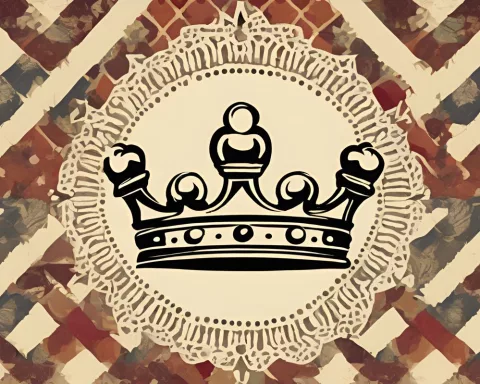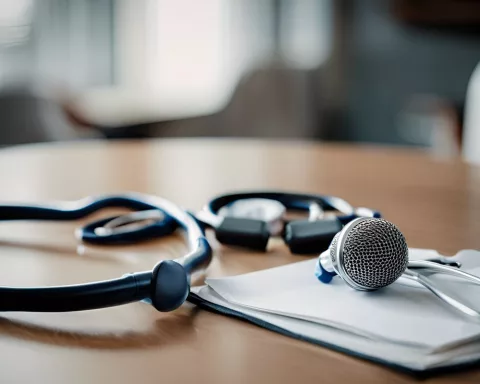The public hearings on the Tobacco Products and Electronic Delivery Systems Control Bill provide citizens with an opportunity to contribute to South Africa’s legislative process and reinforce public health safeguard measures. The bill aims to bring South African tobacco control law in line with the World Health Organization Framework Convention and replace the Tobacco Control Act of 1993. The hearings provide a platform for productive discussions and ensure a broad spectrum of viewpoints are considered, with Dr Kenneth Jacobs urging Eastern Cape inhabitants to participate and shape the future trajectory of South Africa’s tobacco control environment.
What are the Public Hearings on Tobacco Bill?
Public hearings on the Tobacco Products and Electronic Delivery Systems Control Bill (B33-2022) are a continuation of earlier consultations held in different provinces in South Africa, allowing citizens to contribute to the country’s legislative procedure. The Bill aims to reinforce public health safeguard measures and bring South African tobacco control law in line with the World Health Organization Framework Convention by replacing the Tobacco Control Act of 1993. The hearings provide a suitable platform for productive discussions on the Bill and ensure a broad spectrum of viewpoints are considered.
An Overview of the Tobacco Bill Hearings
The Eastern Cape, an area brimming with cultural richness and historical significance, will once again stage a democratic interaction as the public hearings on the Tobacco Products and Electronic Delivery Systems Control Bill (B33-2022) restart from Friday, January 26, to Sunday, January 28, 2024. Following a short hiatus over the December festive period, the Portfolio Committee on Health will reconvene, giving the populace an opportunity to contribute to the country’s legislative procedure.
These hearings are a continuation of earlier consultations held in North West, Limpopo, Mpumalanga, the Free State, and Gauteng. These interactions form an integral part of our parliamentary structure, underscoring the constitutional mandate that encourages public involvement in formulating the legislative standards that supervise our society.
Under Dr Kenneth Jacobs’ guidance, the committee has praised the superior-quality feedback received, underscoring their significance in strengthening the proposed Bill. Dr Jacobs showed a hopeful outlook regarding possible contributions from Eastern Cape inhabitants, whose input will significantly impact the construction of this legislative piece.
The Objective and Reception of the Bill
The Committee is unwavering in its dedication to providing a suitable platform for productive discussions on the Bill. Upholding a stance of impartiality, the Committee has accepted both written and verbal submissions, thereby ensuring that a broad spectrum of viewpoints are considered.
The Bill’s primary objective is to reinforce public health safeguard measures. As part of a larger effort to bring South African tobacco control law in line with the World Health Organization Framework Convention, it is set to replace the Tobacco Control Act of 1993. It embodies a series of legislative alterations, including the declaration of indoor public spaces and designated outdoor locations as completely smoke-free, a ban on selling cigarettes via vending machines, and the introduction of plain packaging featuring graphic health warnings.
Expectedly, these suggested changes have received mixed reactions. The province of Gauteng emerged as a hotbed of contrasting opinions. Some citizens expressed worry about the Bill’s possible disruptive impact on the local economy and the potential for unintended job losses. They suggested that the National Economic Development and Labour Council should reassess the Bill for further contemplation and discussion.
In stark contrast, others proposed alternative mechanisms to control tobacco products and electronic delivery systems, citing their distinct differences. They also voiced discontent over what they view as the Bill’s disregard for harm-reduction strategies.
Public Opinion and Future Hearings
Supporters of the Bill, however, perceive it as a protective barrier, shielding non-smokers from the harmful effects of second-hand smoke. They praised the establishment of smoke-free zones and believe that plain packaging and the sales display ban will deter impulsive consumption and prevent the younger generation from taking up smoking.
Proponents also highlight the economic burden of tobacco-related illnesses, which allegedly cost the Department of Health approximately R40 billion annually. They argue that controlling the tobacco industry is vital in reducing these expenses.
As the public hearings shift to the Eastern Cape, Dr Jacobs urges inhabitants to participate on a large scale, providing invaluable insights and fostering substantive public dialogue. The hearings are scheduled to occur in Butterworth Town Hall on Friday, January 26, followed by the Ashley Wyngaardt Community Hall on Saturday, January 27, and the East London City Hall on Sunday, January 28, with each session running from 10:00 to 15:00.
In summary, these hearings symbolize the dynamic interaction between public health, legislation, and citizen involvement. The Eastern Cape is at the heart of this conversation, with its residents shaping the future trajectory of South Africa’s tobacco control environment.
1. What are the Public Hearings on Tobacco Bill?
Public hearings on the Tobacco Products and Electronic Delivery Systems Control Bill (B33-2022) are a continuation of earlier consultations held in different provinces in South Africa, allowing citizens to contribute to the country’s legislative procedure.
2. What is the objective of the Bill?
The Bill’s primary objective is to reinforce public health safeguard measures. As part of a larger effort to bring South African tobacco control law in line with the World Health Organization Framework Convention, it is set to replace the Tobacco Control Act of 1993.
3. What changes will the Bill bring?
The bill aims to introduce several legislative alterations, including the declaration of indoor public spaces and designated outdoor locations as completely smoke-free, a ban on selling cigarettes via vending machines, and the introduction of plain packaging featuring graphic health warnings.
4. What has been the reception of the bill?
Expectedly, these suggested changes have received mixed reactions. Some citizens expressed worry about the Bill’s possible disruptive impact on the local economy and the potential for unintended job losses. In contrast, others proposed alternative mechanisms to control tobacco products and electronic delivery systems, citing their distinct differences.
5. What is the public opinion on the Bill?
Supporters of the Bill perceive it as a protective barrier, shielding non-smokers from the harmful effects of second-hand smoke, and believe that plain packaging and the sales display ban will deter impulsive consumption and prevent the younger generation from taking up smoking. Proponents also highlight the economic burden of tobacco-related illnesses, which allegedly cost the Department of Health approximately R40 billion annually.
6. What is the schedule of future hearings?
The hearings are scheduled to occur in Butterworth Town Hall on Friday, January 26, followed by the Ashley Wyngaardt Community Hall on Saturday, January 27, and the East London City Hall on Sunday, January 28, with each session running from 10:00 to 15:00.












